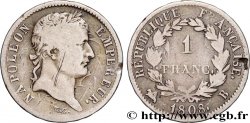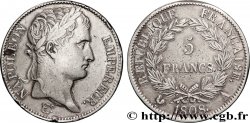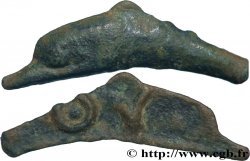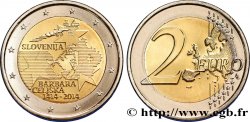fme_674687 - NAPOLEON'S EMPIRE Médaille, Duc d’Enghien, Louis-Antoine-Henri de Bourbon-Condé
недоступный.
Товар уже продан в нашем интернет-магазине (2021)
Цена: : 120.00 €
Товар уже продан в нашем интернет-магазине (2021)
Цена: : 120.00 €
Тип Médaille, Duc d’Enghien, Louis-Antoine-Henri de Bourbon-Condé
Дата: 1804
Металл: copper
Диаметр: 40,5 mm
Ориентация осей монеты: 12 h.
Гравер GATTEAUX Jacques-Édouard (1788-1881)
Вес: 37,15 g.
Век: lisse
Пуансон: sans poinçon
Комментарии о состоянии
Patine marron, des traces de manipulation dans les champs
Лицевая сторона
Аверс: легенда: L. A. H. DE BOURBON. CONDE - DUC D’ENGHEIN..
Аверс: описание: Buste décoré à gauche du duc d’Enghien, signé : GATTEAUX.
Обратная сторона
Реверс: легенда: PERIIT HEROS // À L’EXERGUE : VINCENNAE XXI MART.IS / MDCCCCIV.
Реверс: Описание: Cheval à droite, près d’une tente d’armée ; un écu aux armes de France à ses pieds. Signé : E. GATT..
Комментарий
Cet exemplaire présente une inversion des lettres dans le mot ENGHEIN au lieu de ENGHIEN.
Louis-Antoine-Henri de Bourbon-Condé (Chantilly, 1772 – Vincennes, 21 mars 1804) est un prince du sang français. Il est le 10e et dernier duc d'Enghien.
Fils unique de Louis, dernier prince de Condé et de Louise-Marie-Thérèse-Bathilde d'Orléans, il est le dernier descendant de la Maison de Condé.
Après un début d'union romanesque, ses parents se séparent en 1781. Sa mère est confinée au château de Chantilly.
Dès 1789, quelques jours après la prise de la Bastille et devant les troubles révolutionnaires, le jeune duc d'Enghien, âgé de 17 ans, rejoint l'Armée des émigrés qui se forme outre-Rhin sous le commandement de son grand-père, le prince de Condé et de son père, le duc de Bourbon. Le but de cette armée est de marcher sur la France pour restaurer l'Ancien Régime.
En 1792, le duc d'Enghien prend la tête de l'auto-proclamée Armée royale française. Cette dernière s'engage dans la tentative d'invasion (avortée) de la France aux côtés des armées alliées autrichienne et prussienne réunies sous le commandement du duc Charles-Guillaume Ferdinand de Brunswick. Néanmoins, Le 2 février 1794, il reçoit des mains du comte de Provence la Croix de Saint-Louis pour son comportement valeureux dans l'armée de Condé.
Il se réfugie à Ettenheim, dans le margraviat de Bade, à quelques lieues de la frontière française.
Ses projets de mariage avec la princesse Caroline de Bade ayant été contrariés par le margrave Charles-Frédéric, il vit ouvertement avec la femme de sa vie, Charlotte de Rohan-Rochefort.Napoléon Bonaparte, Premier Consul de France, le soupçonne d'être à l'origine d'un nouveau complot royaliste en compagnie de Dumouriez, à la suite d'une perquisition chez Armand de Chateaubriand (le cousin de François-René de Chateaubriand) qui fut fusillé plus tard. Il le fait enlever par une troupe de soldats menés par le général Ordener dans la nuit du 15 au 16 mars 1804.
Bonaparte ne tarde pas à découvrir la vérité, grâce à des papiers saisis par les membres de l'opération, prouvant que le duc d'Enghien porte les armes contre la République et envoie des assassins, par le biais de l'Angleterre, contre la personne du premier consul. Le duc est presque immédiatement traduit devant un conseil de guerre présidé par Pierre-Augustin Hulin. Après un simulacre de jugement, il est condamné à mort et fusillé dans les fossés du château de Vincennes le 21 mars 1804. Son corps est jeté dans une tombe creusée à l'avance au pied du pavillon de la Reine.
.
This example shows an inversion of the letters in the word ENGHEIN instead of ENGHIEN.
Louis-Antoine-Henri de Bourbon-Condé (Chantilly, 1772 – Vincennes, March 21, 1804) was a French prince of the blood. He is the 10th and last Duke of Enghien.
Only son of Louis, last Prince of Condé and Louise-Marie-Thérèse-Bathilde of Orléans, he is the last descendant of the House of Condé.
After a romantic union, his parents separated in 1781.. His mother is confined to the Château de Chantilly.
In 1789, a few days after the storming of the Bastille and in the face of revolutionary unrest, the young Duke of Enghien, aged 17, joined the Army of Emigrants which was formed across the Rhine under the command of his grandfather, the Prince of Condé and his father, the Duke of Bourbon.. The aim of this army is to march on France to restore the Ancien Régime.
In 1792, the Duke of Enghien took command of the self-proclaimed French Royal Army. The latter engaged in the attempted (failed) invasion of France alongside the allied Austrian and Prussian armies united under the command of Duke Charles-William Ferdinand of Brunswick.. However, on February 2, 1794, he received the Cross of Saint-Louis from the hands of the Count of Provence for his valiant behavior in the army of Condé..
He took refuge in Ettenheim, in the Margraviate of Baden, a few leagues from the French border..
His plans for marriage to Princess Caroline of Baden having been thwarted by Margrave Charles Frederick, he lives openly with the love of his life, Charlotte de Rohan-Rochefort. Napoleon Bonaparte, First Consul of France, suspected him of being at the origin of a new royalist plot in the company of Dumouriez, following a search at the home of Armand de Chateaubriand (the cousin of François-René de Chateaubriand) who was later shot.. He had him kidnapped by a troop of soldiers led by General Ordener on the night of March 15-16, 1804..
Bonaparte soon discovered the truth, thanks to papers seized by members of the operation, proving that the Duke of Enghien was carrying arms against the Republic and sending assassins, via England, against the person of the First Consul.. The Duke was almost immediately brought before a court martial presided over by Pierre-Augustin Hulin.. After a mock trial, he was sentenced to death and shot in the moats of the Château de Vincennes on March 21, 1804.. His body was thrown into a pre-dug grave at the foot of the Queen's pavilion..
Louis-Antoine-Henri de Bourbon-Condé (Chantilly, 1772 – Vincennes, 21 mars 1804) est un prince du sang français. Il est le 10e et dernier duc d'Enghien.
Fils unique de Louis, dernier prince de Condé et de Louise-Marie-Thérèse-Bathilde d'Orléans, il est le dernier descendant de la Maison de Condé.
Après un début d'union romanesque, ses parents se séparent en 1781. Sa mère est confinée au château de Chantilly.
Dès 1789, quelques jours après la prise de la Bastille et devant les troubles révolutionnaires, le jeune duc d'Enghien, âgé de 17 ans, rejoint l'Armée des émigrés qui se forme outre-Rhin sous le commandement de son grand-père, le prince de Condé et de son père, le duc de Bourbon. Le but de cette armée est de marcher sur la France pour restaurer l'Ancien Régime.
En 1792, le duc d'Enghien prend la tête de l'auto-proclamée Armée royale française. Cette dernière s'engage dans la tentative d'invasion (avortée) de la France aux côtés des armées alliées autrichienne et prussienne réunies sous le commandement du duc Charles-Guillaume Ferdinand de Brunswick. Néanmoins, Le 2 février 1794, il reçoit des mains du comte de Provence la Croix de Saint-Louis pour son comportement valeureux dans l'armée de Condé.
Il se réfugie à Ettenheim, dans le margraviat de Bade, à quelques lieues de la frontière française.
Ses projets de mariage avec la princesse Caroline de Bade ayant été contrariés par le margrave Charles-Frédéric, il vit ouvertement avec la femme de sa vie, Charlotte de Rohan-Rochefort.Napoléon Bonaparte, Premier Consul de France, le soupçonne d'être à l'origine d'un nouveau complot royaliste en compagnie de Dumouriez, à la suite d'une perquisition chez Armand de Chateaubriand (le cousin de François-René de Chateaubriand) qui fut fusillé plus tard. Il le fait enlever par une troupe de soldats menés par le général Ordener dans la nuit du 15 au 16 mars 1804.
Bonaparte ne tarde pas à découvrir la vérité, grâce à des papiers saisis par les membres de l'opération, prouvant que le duc d'Enghien porte les armes contre la République et envoie des assassins, par le biais de l'Angleterre, contre la personne du premier consul. Le duc est presque immédiatement traduit devant un conseil de guerre présidé par Pierre-Augustin Hulin. Après un simulacre de jugement, il est condamné à mort et fusillé dans les fossés du château de Vincennes le 21 mars 1804. Son corps est jeté dans une tombe creusée à l'avance au pied du pavillon de la Reine.
.
This example shows an inversion of the letters in the word ENGHEIN instead of ENGHIEN.
Louis-Antoine-Henri de Bourbon-Condé (Chantilly, 1772 – Vincennes, March 21, 1804) was a French prince of the blood. He is the 10th and last Duke of Enghien.
Only son of Louis, last Prince of Condé and Louise-Marie-Thérèse-Bathilde of Orléans, he is the last descendant of the House of Condé.
After a romantic union, his parents separated in 1781.. His mother is confined to the Château de Chantilly.
In 1789, a few days after the storming of the Bastille and in the face of revolutionary unrest, the young Duke of Enghien, aged 17, joined the Army of Emigrants which was formed across the Rhine under the command of his grandfather, the Prince of Condé and his father, the Duke of Bourbon.. The aim of this army is to march on France to restore the Ancien Régime.
In 1792, the Duke of Enghien took command of the self-proclaimed French Royal Army. The latter engaged in the attempted (failed) invasion of France alongside the allied Austrian and Prussian armies united under the command of Duke Charles-William Ferdinand of Brunswick.. However, on February 2, 1794, he received the Cross of Saint-Louis from the hands of the Count of Provence for his valiant behavior in the army of Condé..
He took refuge in Ettenheim, in the Margraviate of Baden, a few leagues from the French border..
His plans for marriage to Princess Caroline of Baden having been thwarted by Margrave Charles Frederick, he lives openly with the love of his life, Charlotte de Rohan-Rochefort. Napoleon Bonaparte, First Consul of France, suspected him of being at the origin of a new royalist plot in the company of Dumouriez, following a search at the home of Armand de Chateaubriand (the cousin of François-René de Chateaubriand) who was later shot.. He had him kidnapped by a troop of soldiers led by General Ordener on the night of March 15-16, 1804..
Bonaparte soon discovered the truth, thanks to papers seized by members of the operation, proving that the Duke of Enghien was carrying arms against the Republic and sending assassins, via England, against the person of the First Consul.. The Duke was almost immediately brought before a court martial presided over by Pierre-Augustin Hulin.. After a mock trial, he was sentenced to death and shot in the moats of the Château de Vincennes on March 21, 1804.. His body was thrown into a pre-dug grave at the foot of the Queen's pavilion..








 Cообщить об ошибке
Cообщить об ошибке Распечатать страницу
Распечатать страницу Отправить мой выбор
Отправить мой выбор Задать вопрос
Задать вопрос Consign / sell
Consign / sell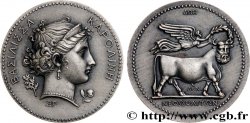
 Информация
Информация
